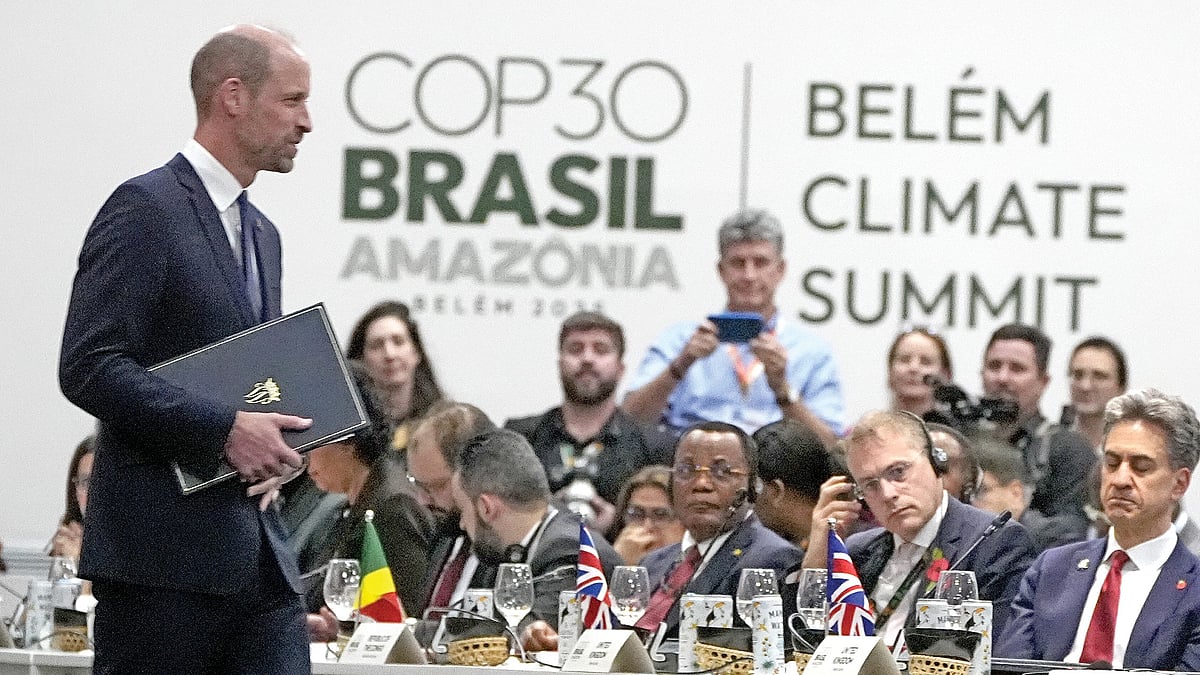World
Climate summit or ‘climate casino’?
Optimists see COP30 as the last chance to display the collective will to fight for a just, more equitable, environment-friendly future

Not many are hopeful that the ongoing climate summit (COP30) at Belém, Brazil, will yield tangible results. The cynicism is not without reason. Critics and protestors have dismissively called the event a ‘climate casino’, accusing world leaders of making empty promises and doing nothing amid growing alarm over unchecked environmental degradation.
A staggering 50,000 delegates will converge during the 12-day summit (10–21 November) being held at this ‘gateway to the Amazon rainforest’— the world’s largest tropical forest, also known as the lungs of the earth, which produces 20 per cent of the planet’s oxygen and plays a critical role in global carbon sequestration.
The slightly wishful idea of holding it in Belém is to draw global attention to the risks of unchecked deforestation, which is greatly exacerbating the effects of climate change.
Despite decades of conferences and pious pledges, the climate crisis has only worsened. Natural forests are dwindling at an alarming rate as governments yield to ‘development’ pressures and make over vast tracts to mining and other companies with an appetite for forest resources.
These leaders are all ‘pro-business’, the protestors argue, indifferent to the environmental costs borne by the world’s poorest. “We can’t eat money,” they say, as millions lose homes and livelihoods to fires, floods and droughts.
Government leaders and big business couldn’t care less, possibly because they don’t yet feel the heat. Donald Trump, President of the United States, still one of the world’s biggest polluters, says climate change is a hoax. The heads of state of the world’s three largest polluters—China, the US and India—have all decided to stay away, underscoring their apathy. Which begs the question: have the COP summits— like the UN itself—lost their relevance?
China, even while leading in greenhouse gas emissions, has made impressive progress in renewable energy and electric vehicles, meeting 2030 targets ahead of schedule. On the other hand, India, Iran and the US remain heavily dependent on fossil fuels and show little interest in leading a global transition. They disregard the risks of small island countries in the Pacific Ocean (Marshall Islands, Samoa, Nauru and Fiji), the Caribbean (Barbados, Jamaica, Bahamas, Haiti, St Kitts and Nevis) and Indian Ocean states (Maldives, Mauritius and Seychelles)—all at risk of being swallowed by rising seas.
Published: undefined
The urgency for climate action is underlined by the increase in extreme weather events—floods, droughts, wildfires and heatwaves affect nearly every region in the world. Last year was the hottest on record, with average surface temperatures exceeding 1.5 degree Celsius above pre industrial levels—the threshold agreed upon for year 2100, under the 2015 Paris Agreement (COP21). So, this limit was crossed decades earlier than anticipated, and UN analyses hint that without sharp cuts in emissions, temperatures could rise 2.3–2.5 degree Celsius by the end of the century.
The scorching heatwaves of 2023 and 2024 affected Europe, the Americas and India, underlining once again the urgent need for effective emission reduction targets—the so-called NDCs (Nationally Determined Contributions). Beyond all the rhetoric and pledges, what the world needs are actionable, near-term strategies across the energy, industry and transport sectors.
Renewable energy is central to the discussions, with goals to treble global renewable capacity and improve energy efficiency by 2030. Yet there are doubts about the sustainability of solar power. A typical solar panel lasts 25–30 years, and many early installations require replacement soon. This will create a surge in electronic waste made of toxic materials—cadmium, lead, selenium— that could contaminate soil and water if improperly disposed. Recycling solar panels is technically challenging, costly and inefficient, raising environmental concerns about the long-term viability of massive solar deployment.
Yet another reason for the scepticism is countries invoking ‘national security’ concerns all the time and waging wars that have a massive environmental footprint. The ongoing Russia–Ukraine war, the Gaza conflict, the recent US strikes on Iranian nuclear facilities have collectively generated carbon emissions on a staggering scale, comparable to the annual output of some countries.
Military emissions, often exempt from disclosure, remain one of the least discussed but most damaging contributors to global warming. While the 2015 Paris Agreement removed exemptions originally granted under the 1997 Kyoto Protocol, major polluters like China, Israel and India remain reluctant to disclose military greenhouse gas emissions.
And yet the optimists see COP30 as the last chance to display the collective will to fight for a just, more equitable, environment-friendly future.
Published: undefined
Follow us on: Facebook, Twitter, Google News, Instagram
Join our official telegram channel (@nationalherald) and stay updated with the latest headlines
Published: undefined